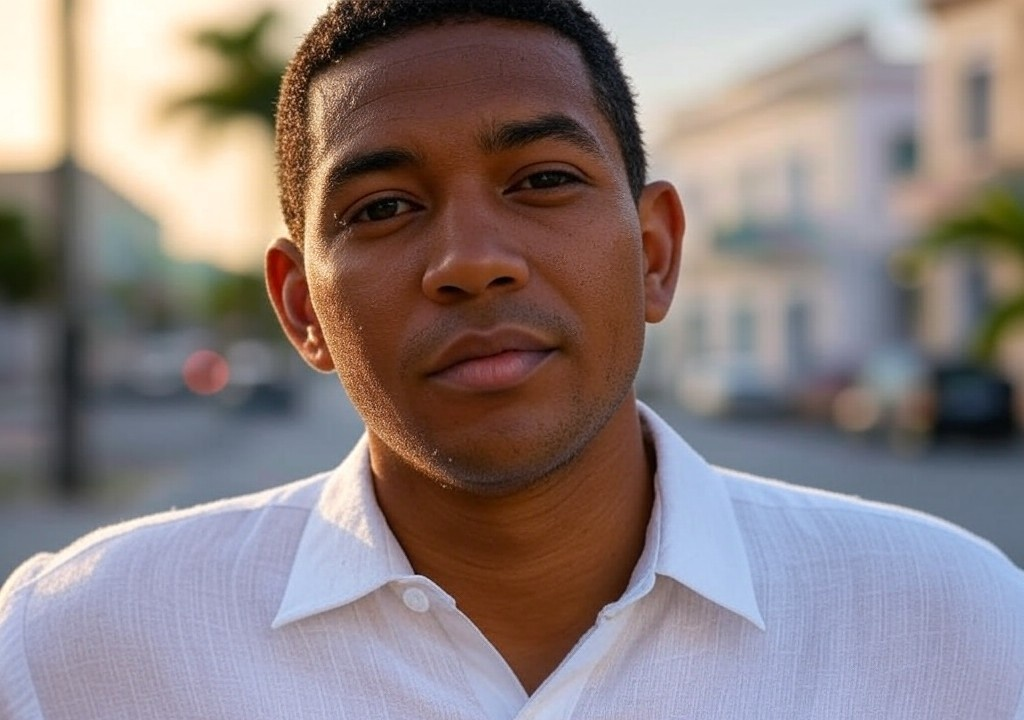“Raúl Batista,” she said, holding the vowels in her mouth like they were dipped in honey. I was eight years old, clutching a spelling test, and my teacher had just given my name its first non-native spin. It came out more “Rowl” than “Rah-ool,” a translation that stuck like gum on the sole of my sneakers. I didn’t bother correcting her. Why rain on her parade when I wasn’t sure my name needed the drama of an accent mark anyway?
It wasn’t until I got older—older than “spelling test champion” but younger than “owns two types of insurance”—that I began to realize just how much depth your name carries. A name isn’t just the thing people shout at Starbucks when your order’s ready; it’s your identity’s opening chapter, the quickest shorthand for who you are. And dating? Yeah, dating will test your relationship with your name faster than a first-date margarita happy hour, especially if your name comes with a set of unspoken rules, an origin story your parents spin like gold, or a pronunciation that trips people up at every mixer and office meeting.
So, let’s talk names: where they come from, how they shape us, and whether that person mispronouncing it for the fifth time deserves a call-back.
What’s In a Name? (More Than You Think)
Growing up in my Cuban American household, names were never just names—they were cultural artifacts. “Raúl” wasn’t just what my mom yelled from the kitchen when I took too long with chores; it was a living link to my abuelo, a tributo to the man who taught my dad how to roll a cigar and bake a perfect pastelito. My parents didn’t pick my name out of a baby book. They chose it the same way you’d pick tiles for a mosaic: carefully, knowing it was a piece of something bigger—a legacy of resilience, faith, and family potlucks that ended in domino games on the patio.
But being “Raúl” in Hialeah was one thing. Being “Raúl” in the labyrinth of dating? Entirely different. On first dates, my name came with explanations: “It’s pronounced rah-OOL, kind of rhymes with cool.” Swipe through the wrong zip codes for too long and you’d think I was one bad date away from rebranding as “Rick” just to avoid the effort. Would Rick get fewer stares at brunch? Maybe. But where’s the fun in that?
The Telenovela of Pronunciation
Knowing your name comes with an accent is like knowing your favorite song has a hidden verse—it adds flavor, but not everyone sticks around long enough to appreciate it. Through college, I learned to decode the hesitation when someone approached me, syllabus in hand, eyeing my name like it was part of a pop quiz they hadn’t studied for. “Ray-oool?” “Ree-ool?” Sometimes, they’d just panic and go with “buddy."
I even had one coworker in Tallahassee try to convince me that my own name was wrong. “It’s not Rowl?” she asked, blinking at me with the confidence of someone who truly believed Taco Bell was authentic Mexican food.
Here’s the thing about names with “flavor.” They’re conversation starters. Icebreakers. That girl with the almond latte at the bookstore who asks about its history might just turn into your next person. But they’re also mirrors. The way people react to your name? It tells you, instantly, whether they’re curious, lazy, or just plain indifferent.
Spoiler alert: Stick to the people who ask with curiosity. The ones who see your name as part of the package, not an obstacle.
How to Call Yourself By Your Own Name
Your relationship with your name is a lot like your relationship with yourself. It changes, grows, demands a little work. When I started dating seriously, I had to learn to introduce myself not just by name but by what it means—without apologizing, without shrinking it down to fit someone else’s comfort. Here’s what helped:
1. Correct People the First Time
It sounds small, right? But gently reminding someone of the correct pronunciation can save you from resentment three months (or three dates) later. Love, after all, starts with mutual respect—so it’s okay to say, “Actually, it’s rah-OOL, not Rowl.” If they care, they’ll adjust.
2. Learn the Story of Your Name
Dive deep into the meaning, the origin, the reason your parents fought for it. The more you know about your name (whether it’s a family heirloom or just your mom’s favorite telenovela character), the more you’ll embrace its power. Bonus: It’s a great story for that awkward “what’s your family like?” third-date question.
3. Celebrate Its Uniqueness
Let’s face it—being unique is what makes us memorable. You wouldn’t want to date someone who treats you like you’re replaceable. Don’t treat your name that way either.
4. Watch How Others Treat It
Someone who doesn’t bother to learn your name is probably not going to bother with the things that make you you. That’s a one-way ticket to splitsville.
Names and New Romances
There’s this one date I always think about: we were at a food truck in Little Havana, debating whether empanadas count as a full meal, when she tried my name out loud for the first time. “Rah-OOL,” she said carefully, as if testing its weight in her mouth. Then she smiled. “I like that.”
It wasn’t the grand gesture that did it for me—it was the fact that she tried. She didn’t twist it into something it wasn’t. She didn’t laugh when she stumbled over the syllables at first. Instead, she gave my name its space. Sometimes, that’s all we want: room to be who we are.
And that’s the thing about names. They’re more than introductions. They’re invitations to know the real you.
Call Me By My Name
So if you’re reading this and wondering whether to embrace your name, to let it stretch out fully in relationships, I’ll leave you with this: don’t shrink yourself for someone else’s convenience. Your name is yours—it’s your story. And the right person? They won’t just call you by your name. They’ll say it like it’s the most natural thing they’ve ever done.




















